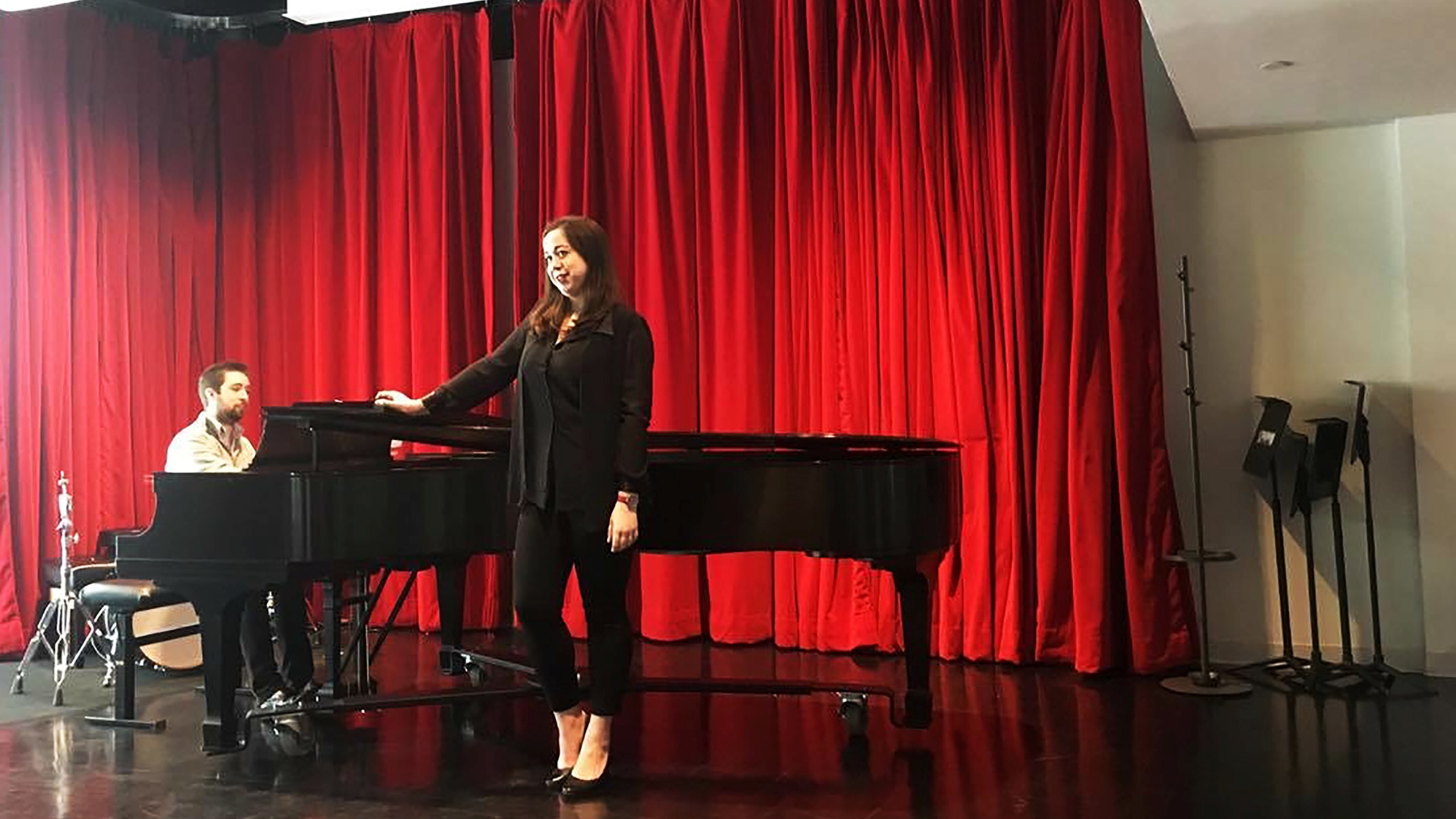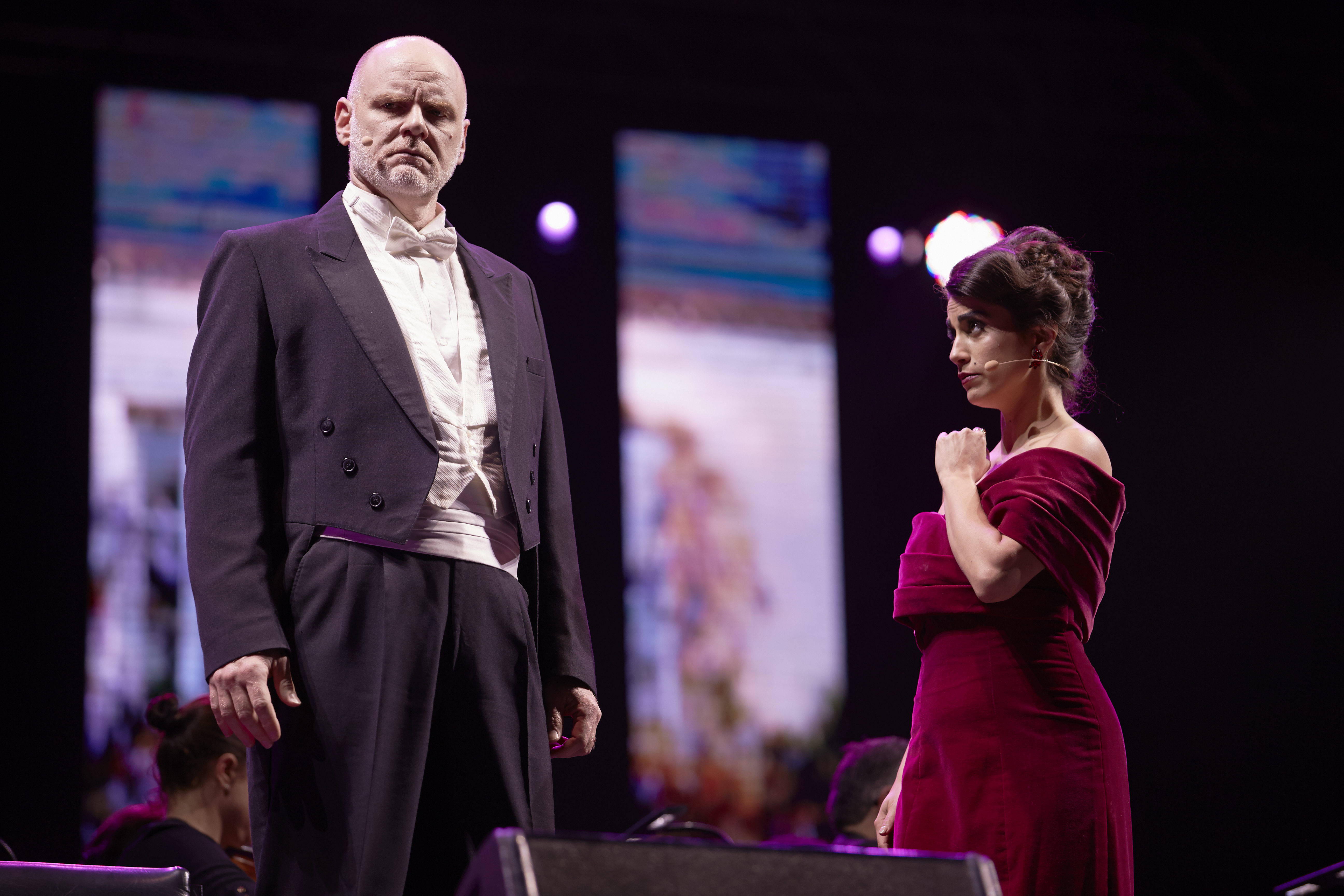WAO Ghost Spotlight with Chelsea Kluga
With preparations well underway for our mainstage return, the opportunity to peek behind the scenes has never been more thrilling. From initial coaching sessions to the sitzprobe, we want to shine a spotlight on our creatives working in the Ghost Light to bring the magic of opera to you. Connect with your state opera company on an intimate level and understand how a strong sense of support, community and purpose can drive aspiring young musicians.
Join us in conversation with Wesfarmers Arts Young Artist Chelsea Kluga as she reflects on collaboration within the Nightingale rehearsal studio, the importance of encouraging youth artistic development, and her favourite piece of music to kindle emotion.
1. Soon we will be returning to the mainstage with The Nightingale. What does the rehearsal process involve and what are you most looking forward to?
The Nightingale, like any collaborative piece, has many moving parts that can only come together towards the end of the rehearsal process. We start by having individual coaching sessions with Chris van Tuinen before moving onto music calls where we get to work with the West Australian Young Voices. Next is blocking and staging with Co:3 Australia, before the production is finally brought to the theatre and we are joined by the WA Youth Orchestra. My favourite step is always the sitzprobe where we sing with the orchestra for the first time. It immediately influences how you sing and the energy you bring as a performer.
2. What challenges and opportunities did the pandemic period present for you as a young artist?
It was a slow wave of cancellations, and while there were a couple that were more difficult to deal with, our pandemic period in Perth was so short in comparison to other states. I was still teaching singing via Zoom for which I was incredibly grateful. There was a lot of problem-solving involved within those new online parameters, which kept me engaged (and at times very frustrated), and keeping students motivated helped me stay motivated. I spent my extra time working on repertoire I had put to one side, lots of technical work and some very indulgent Russian folk songs.
3. How important do you think it is to enable youth audiences to enjoy work produced by their peers?
I think it’s vital as part of a much bigger plan to encourage younger audiences to come to the theatre and experience something new. I don’t know whether enjoyment comes into it as much as the importance of being supportive of the creative process while young people are learning and allowing youth audiences to see and hear that.
I worked at Western Australian Youth Orchestras for a few years and before that I was a member of WAYO, the symphonic band and the youth choral, and our audiences were largely comprised of aspiring musicians and our friends coming to see us perform. I think it can be very inspiring for young people to see people their age working and striving to make good art, imperfections and all.
4. What advice would you give to your younger self?
Hard to narrow it down!
- There is no ‘getting it’ when it comes to the voice. It is forever changing and growing so it must be allowed to be different day to day.
- Explore problems rather than finding ways to hide them.
- Ask all the questions, and if you can’t get clear answers, keep searching for someone who can give them to you!
- You never know where your career might take you. When it comes to education try not to put things into the ‘this doesn’t apply to me’ box.
5. Can you share with us an artistic work – be it a piece of music, art, dance, film or theatre – that ignites your emotions?
Tchaikovsky's Piano Concerto Movement 1. At some point I put it on a Spotify playlist, and I guess I would never skip it, so it’s become the default song whenever I shuffle my music. Best experienced in a car where you can sing all the parts loudly!
6. What exciting projects do you have on the horizon?
Apart from The Nightingale, I’m singing for a WA Opera Lovers concert in Government House Ballroom, a dinner concert at Brookfield Place, Così fan tutte with West Australian Opera, and then a few exciting projects focused on celebrating new works by female composers.
Chelsea Kluga will star in The Nightingale on stage at His Majesty’s Theatre next month. Find out more about this enchanting new production here.
ABOUT CHELSEA KLUGA
Chelsea Kluga made her professional debut as the Woodpecker with West Australian Opera in the 2018 production of The Cunning Little Vixen and has been a chorus member since 2017. Completing her Master of Music at Mannes College in New York City, she was the recipient of the Dame Joan Sutherland Scholarship and a finalist for the Marin Alsop Entrepreneurship Award (2016). During her time at Mannes as part of the apprentice studio she performed as Olga (Eugene Onegin), Marcellina (Le Nozze di Figaro), the Third Lady (Die Zauberflöte) and Idamante (Idomeneo).
Chelsea attended the Western Australian Academy of Performing Arts where she completed a Graduate Diploma and Bachelor of Music for voice, and prior to this a Bachelor of Music for clarinet. She was awarded the V.H Cooper prize during her first year and her roles at the academy included Meg in Little Women and Clorinda in Il Combattimento di Tancredi e Clorinda. Before switching her major from clarinet to voice, Chelsea was a member of the Australian International Symphony Orchestra Institute (AISOI) and the Western Australia Youth Orchestra (WAYO).


